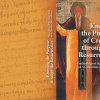She has published extensively on post-Renaissance and modern art in American, Serbian and Bosnian journals and has given lectures and presentations at many scholarly institutions and organizations such as the Woodrow Wilson Center in Washington DC, the European Science Foundation, the British Academy in London, Columbia University, University of Illinois at Chicago, UC Berkeley, and the SECAC/MACAA Conferences. Rakic is the recipient of Indiana University’s prestigious Esther L. Kinsley Award and Franklin College Faculty Travel and Faculty Excellence awards.
Her paintings dealing with “inner landscapes” have been exhibited in solo and group exhibitions in Bloomington, Terre Haute and Franklin in Indiana, as well as in galleries in Serbia and Germany. In 2007, she received the Puckett Award of Recognition presented by the Swope Art Museum in Terre Haute in a show juried by David Edgar of the Arts Administration Program at the University of North Carolina in Charlotte. In 2004, she received the Pfizer Award of Honor presented by the Swope Art Museum in Terre Haute in a show juried by curator Nato Thompson of the Massachusetts Museum of Contemporary Art.
Since 1996, she has been teaching art history and studio art courses at Franklin College. Most recently she has been invited to teach at the summer program for the Sinoway International Education Group at Sun Yat-Sen University in Guangzhou and at Beijing Normal University in Beijing, China.
Phone: (317) 738-8278 | Email: This email address is being protected from spambots. You need JavaScript enabled to view it.
Source: Franklin College





